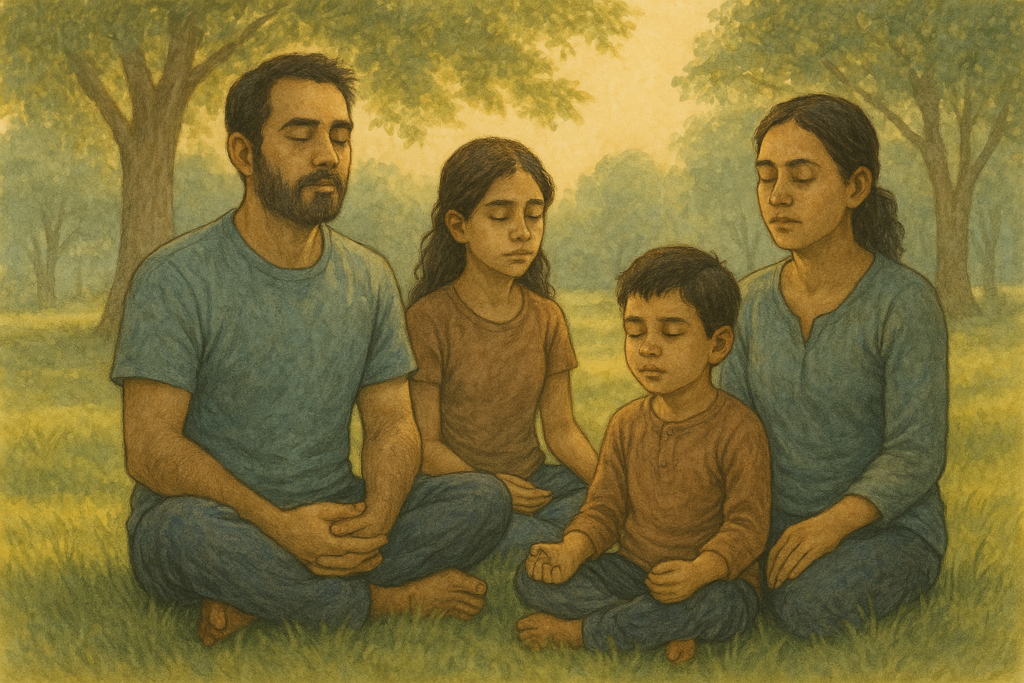Introduction

The current socio-political climate in the United States has ushered in a time of heightened uncertainty for immigrant communities, particularly in light of the ongoing threats of deportation. Recent statistics reveal a significant increase in deportation rates, underscoring the urgency of the situation. According to data from the Department of Homeland Security, deportation figures have risen sharply over the past few years, creating an environment rife with anxiety and fear among immigrant families.
This precarious reality not only affects the individual apprehended but also reverberates throughout their families and communities. Thus, implementing mental health strategies for immigrant families coping with uncertainty is crucial. In many cases, the psychological impact of such fears can lead to severe emotional distress.
Imagine a mother living in constant fear of losing her husband to deportation, or children left wondering if they will see their parents again. The emotional turmoil is not just an individual experience; it permeates every aspect of their lives, affecting school performance and relationships. Understanding this context highlights the urgent need for effective coping mechanisms and support systems.
Implementing mental health strategies for immigrant families can significantly improve emotional resilience in these communities.
Many find that mental health strategies for immigrant families help them cope with anxiety and uncertainty.
Understanding mental health strategies for immigrant families is essential for promoting overall well-being.
Collective mental health strategies for immigrant families can lead to healthier communities and stronger connections.
Immigrant families are often beset by a myriad of emotions, including fear, anxiety, and helplessness, all rooted in the fear of separation. The looming threat of deportation can take a profound emotional toll on these individuals, significantly impacting their mental health.
As the constant worry about potential deportation into an uncertain future increases, families find themselves grappling with a range of psychological challenges, such as depression, chronic stress, and a feeling of isolation from their communities.
Furthermore, the social fabric of these families is severely tested when one member is detained or deported, leading to a loss of income, housing instability, and changes in family dynamics. The emotional burden is further exacerbated by a lack of access to mental health resources; many immigrants face barriers that impede their ability to seek help, including language differences, stigma, and financial constraints.
Community support groups can play a pivotal role in alleviating some of these burdens by providing a safe space for families to share their experiences and support one another.
Organizations can play a crucial role in disseminating mental health strategies for immigrant families to facilitate access to resources.
Mental Health Strategies for Immigrant Families
Information about mental health strategies for immigrant families should be readily available to ensure proper access to care.
Using mental health strategies for immigrant families can significantly improve communication and relationships.
Conclusion: Prioritizing Mental Health Strategies for Immigrant Families
The role of mental health strategies for immigrant families is crucial in navigating cultural differences.
Addressing the mental health needs of immigrant families is not just a matter of individual well-being; it is essential for the health of the community as a whole. By implementing effective mental health strategies for immigrant families, we can create a more resilient population that is better equipped to navigate uncertainty and fear.
It is vital that stakeholders, including policymakers, mental health professionals, and community organizations, collaborate to provide accessible resources and support systems. Ultimately, fostering a supportive environment will contribute to the overall mental health of immigrant families and help them thrive despite the challenges they face.
Professional Help and Resources
Seeking professional help is an important step for families struggling with mental health issues. Many immigrants may have reservations about accessing mental health services due to cultural stigma or unfamiliarity with the healthcare system.
It’s crucial to provide information about culturally competent mental health professionals who understand the unique challenges immigrant families face. Teletherapy has emerged as a practical solution for accessing mental health support, particularly for those who may struggle to find local resources.
Furthermore, educating families about the signs of mental distress can empower them to seek help early, thereby improving outcomes.
Maintaining cultural identity and using mental health strategies for immigrant families can enhance emotional support.
Encouraging Open Communication
Community centers can help implement mental health strategies for immigrant families through workshops and engagement.
Mental Health Strategies for Immigrant Families
Open communication is a critical element in restoring mental health and resilience within immigrant families. Encouraging family members to express their feelings and concerns can help alleviate emotional burdens.
Family meetings, where everyone has the opportunity to share their thoughts, can create an atmosphere of support and understanding. Parents can play a pivotal role by being transparent about their own fears while simultaneously validating their children’s emotions.
This approach not only helps to build trust but also strengthens family bonds, fostering an environment where everyone feels valued and heard.
Adopting mental health strategies for immigrant families promotes a culture of support and understanding.
By sharing effective mental health strategies for immigrant families, we can foster hope and resilience.
The Role of Cultural Identity in Mental Health
Maintaining cultural identity can play a significant role in the mental health of immigrant families. Celebrating cultural traditions, language, and heritage can instill a sense of pride and belonging, helping to mitigate the psychological effects of assimilation stress.
For instance, participating in traditional festivals or family gatherings can reinforce familial bonds and provide emotional support during trying times. Additionally, engaging with cultural communities can serve as a protective factor against mental health issues.
Support and validation from those who share similar backgrounds can enhance resilience, making it essential for families to stay connected to their cultural roots as a coping strategy.
Building Resilience Through Community Support
Community support is invaluable for immigrant families grappling with mental health challenges. Supportive networks can provide emotional comfort and practical assistance, helping families feel less isolated.
Organizations focused on immigrant advocacy often offer mental health resources, legal assistance, and social services, which can dramatically improve the quality of life for families in distress.
For example, community centers that host workshops on mental health awareness can empower individuals to seek help and educate them on available resources. Furthermore, creating and participating in local support groups can foster a sense of belonging and shared experience among families, significantly alleviating feelings of loneliness and despair.
In such a tumultuous environment, the importance of developing resilience and adopting effective coping strategies cannot be overstated. Mental health must be prioritized as a crucial component of overall well-being for immigrant families facing the threat of deportation.
Strategies such as mindfulness, family counseling, and community engagement can be life-changing. For example, implementing mindfulness practices, such as meditation or yoga, can help families cope with daily stressors.
Family counseling not only provides a space for open communication but also fosters a sense of unity and understanding among family members. Addressing these mental health concerns in a proactive manner will empower families to navigate their fears and uncertainties more effectively.
Additionally, involving children in community activities can not only help in socialization but also reduces feelings of isolation. The subsequent sections will explore practical strategies and tools designed to support mental health, thereby helping immigrant communities fortify their emotional defenses during these challenging times.



